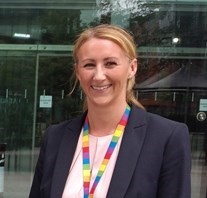Serious violence: GPs as part of the healing process

As your colleagues in the emergency services, many individual police officers and staff have felt your pain over the last couple of years.
Standing on the frontline of the battle against Covid should win any self-respecting person’s thanks. We also share your disappointment in the recent criticism of an NHS workforce that must feel like a war-weary army who have just noticed more enemy battalions coming over the hill.
So, the last thing you’ll be expecting is for me to request an addition to a workload that has been consumed by Covid, a backlog of treatments and the filling-in you have had to do for dentists, social workers, and mental health specialists.
However, I’m going to do just that.
With the expertise of Liverpool John Moores University, we’ve just completed a survey into the cost of serious violence in our region. The yearly tab is £185m. Included in that burdensome bill was the price of treating injuries, but there were also hidden health costs, such as days off sick and 81,000 hours of counselling victims and their families needed to get over the trauma of serious violence.
Drill down into the report and you’ll find that the vast majority of injuries aren’t the knife and gun crime wounds that dominate our headlines, but rather abrasions, bruising and broken bones. Rehabilitation, which often falls under the primary care remit, accounts for a large chunk of that spend.
Our Partnership, like many Violence Reduction Units across the country, is taking a public health approach to solving this. From Reading to the Bump (a scheme to foster strong bonds between parent and baby) to the Navigators programme working in Liverpool hospitals including Alder Hey (which sees medics refer injured young people to youth workers), we offer alternative pathways to the toxic environments that lead to crime.
To some, the Fire and Rescue Service seem a surprising member of our partnership. Yet local stations are running initiatives that both teach children firefighting and skills that will aid them in work and life. That way, they believe, arson attacks are reduced and engagement with the emergency services improved.
Which brings me to the GP practice and organisations such as CCGs. A small amount of guidance, mentoring and activity can alter the course of a young person’s life, especially if they’re on the cusp of criminality. I know that GPs visit local schools occasionally and some take on work placements.
Personally, I can’t think of a more upstanding and yes heroic role model than a GP or nurse practitioner.
If that all seems like too much, consider again that bill for serious violence. We’d all like to waste fewer resources and have more time to care for the people who we’re called to help. A few minutes here and there invested in guiding our next generation could make a lifetime’s difference and prevent the pain of injury and mental trauma that’s clearly affecting too many within our communities.
All of us in the emergency services are left to deal with the consequences of trauma – whether that be putting out fires, arresting offenders or treating patients. Let’s also be the embodiment of that old and truthful adage prevention is better than cure, and stop the scourge of violence from happening in the first place.
Overall, we would love for you as GPs to join with the Violence Reduction Partnerships in tackling the causes of violence.
After all, you’re the ones so often dealing with the physical and mental effects of it.
You could do this in a number of ways. This might be sharing with us what kind of violence-related injuries you’re treating, or whether there’s been a rise in cases of domestic abuse or deterioration of young people’s mental health because of bullying.
You could note whether alcohol and drug abuse are growing problems in your areas, which could be relayed to their local Violence Reduction Unit. This is so that they can create programmes aimed at solving the issues.
Patients tend to open up to their GPs, and so themes and trends, rather than individual cases, can be shared with us.
In addition, GP practices could act as hubs to signpost patients to their own and other violence reduction services.
It’s wise to try to truly connect health and social care up, perhaps in the way Homeless Friendly asks practices to keep a list and simply guide patients towards help.
In many communities, the practice building is the hub. So space could be offered to families with young children, so the programmes can intervene and promote healthier, less violent lives.
Another idea is for staff, if able to, to act as mentors for young people.
Despite concerns aired about general practice, it remains one of the most respected roles.
Could practice partners also think about offering placements or mentoring to young people who have had a difficult start in life?
These options may sound onerous to already overworked GPs – but we don’t feel that they are. Furthermore, in the long run, if we have safer, less violent communities, then we should have fewer mental health issues to deal with, a reduction in trauma and even less need to treat injuries.
Detective Superintendent Siobhan Gainer is head of the Merseyside Violence Reduction Partnership – made up of police, fire and rescue, DWP, local authorities and health professionals
Pulse October survey
Take our July 2025 survey to potentially win £1.000 worth of tokens

Related Articles
READERS' COMMENTS [3]
Please note, only GPs are permitted to add comments to articles











Sadly even the RCGP has long confused GPs with medically qualified social workers.
Absolute garbage
https://dentistry.co.uk/